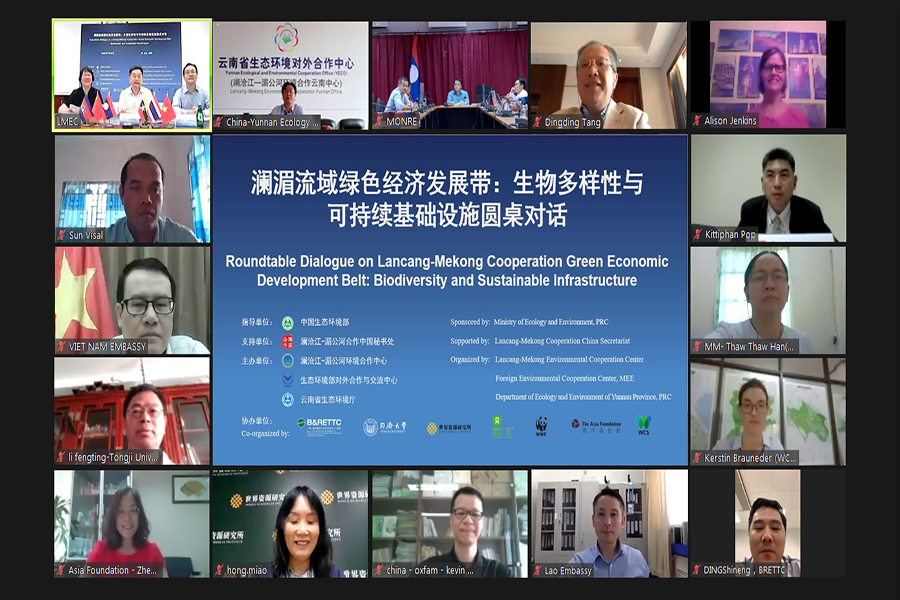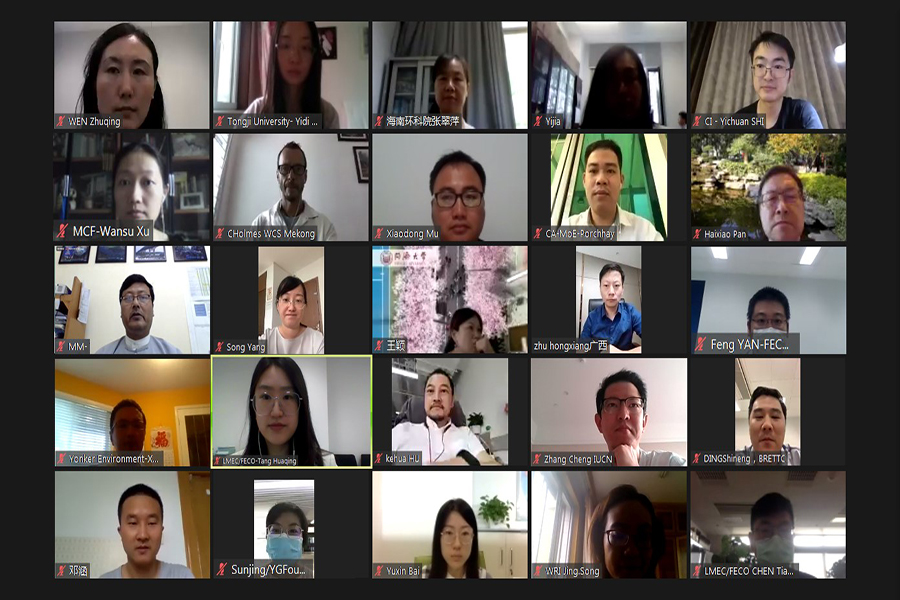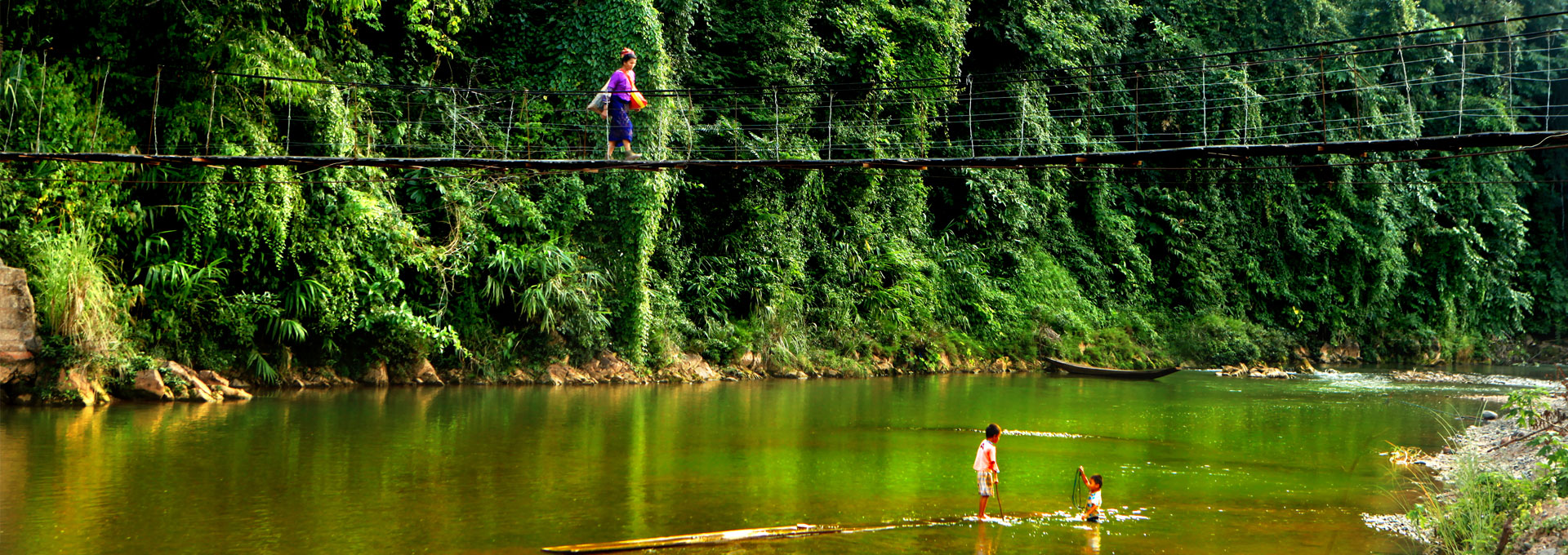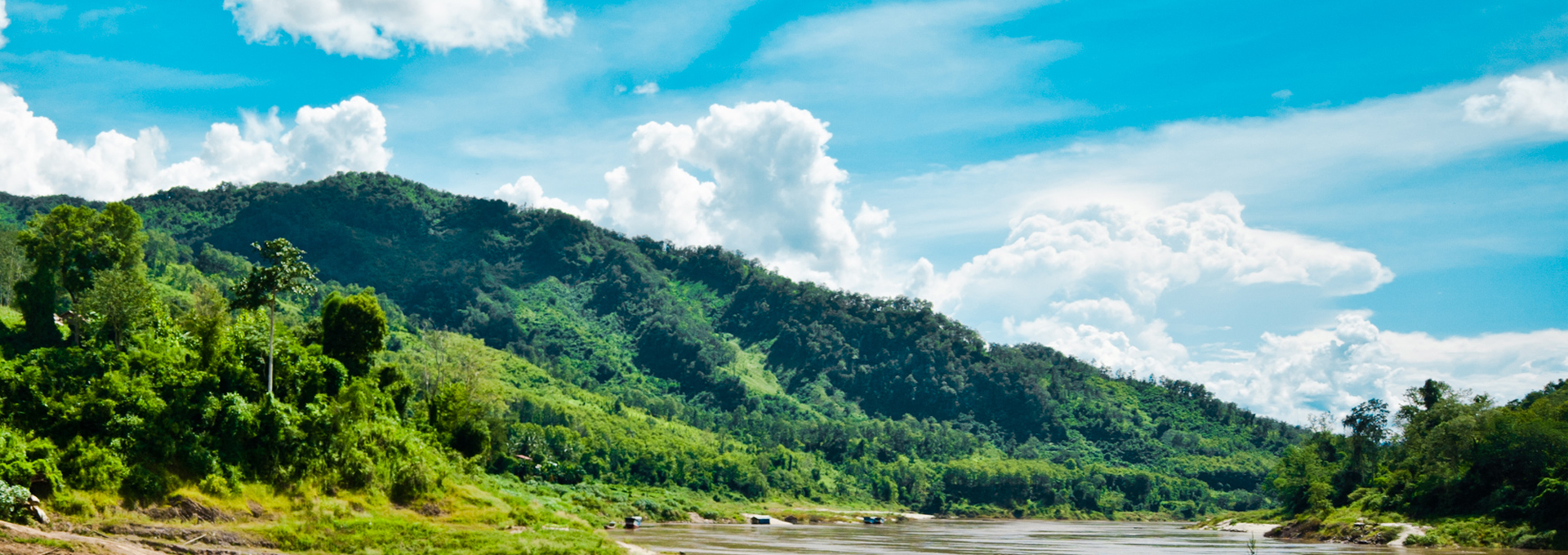On July 30, 2020, the Roundtable Dialogue on Lancang-Mekong Cooperation Green Economic Development Belt: Biodiversity and Sustainable Infrastructure was successfully held online. The event was jointly organized by the Foreign Environmental Cooperation Center (FECO) of Ministry of Ecology and Environment (MEE)/Lancang-Mekong Environmental Cooperation Center (LMEC) and the Department of Ecology and Environment of Yunnan Province, and was co-organized by Belt and Road Environmental Technology Exchange and Transfer Center (Shenzhen), Tongji University, World Resources Institute, Oxfam, World Wildlife Fund, Asia Foundation and Wildlife Conservation Society, under the guidance of MEE and the support of Lancang-Mekong Cooperation (LMC) China Secretariat. Representatives from MEE and its affiliated institutions, embassies of Mekong countries in China, environmental departments and industrial sectors of Mekong countries, related international organizations, research institutes and enterprises attended the meeting.
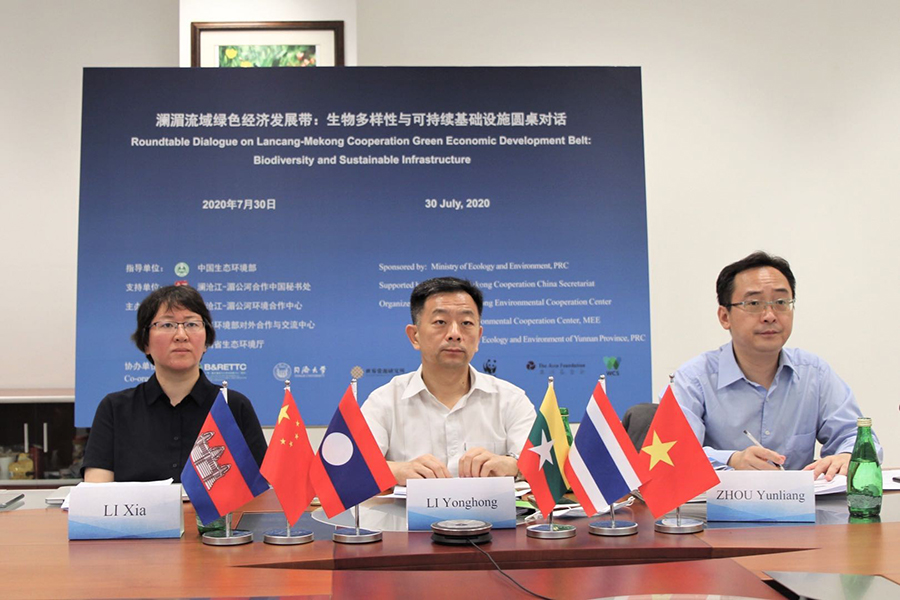
The Roundtable Dialogue was attended by many government officials with opening remarks, including LI Yonghong, Deputy Director of FECO/LMEC, ZHOU Yunliang, First Secretary of LMC China Secretariat, Syamphone Sengchadala, Director General of the Department of Climate Change Management, Lao Ministry of Natural Resources and the Environment, and PU Lifeng, Deputy Director General of the Department of Ecology and Environment of Yunnan Province. Besides, keynote speeches were given on a series of topics, ranging from cooperation prospects on constructing Lancang-Mekong Cooperation Green Economic Development Belt, and constructing regional climate resilient infrastructure concerning children issues, by TANG Dingding, Joint Secretary-General of International Finance Forum and Former Chairman of Compliance Review Committee, Asian Development Bank, and Dr. Alison Jerkins, Senior Advisor of the South-South Cooperation and Partnerships Division, UNICEF.
In his speech, Mr. LI Yonghong stated that the Roundtable Dialogue aims at enhancing the policy exchange and experience sharing in the field of biodiversity conservation and sustainable infrastructure, which not only represents an important effort to implement the leaders’ initiative, but also provides an important direction for future LMC. As a strong advocate for regional environmental cooperation, China has been playing an active role in and is willing to join hands with countries in the region to build a green, low-carbon and sustainable LMC Economic Development Belt, so as to contribute to the well-beings of the people in the region.
In his remarks, Mr. ZHOU Yunliang expressed that since officially launched, LMC has witnessed increasingly improved mechanism construction, continued expansion in cooperation and enhanced endogenous growth momentum, with the awareness of LMC deeply seated in the minds of people, which has greatly contributed to the diplomatic relations between countries in the region, forming a new pattern for regional cooperation featuring openness, inclusiveness, mutual benefits and win-win outcomes. In recent years, Lancang-Mekong countries have intensified their efforts in advancing environmental cooperation through a series of flagship programs, including establishing the Lancang-Mekong Environmental Cooperation Center, developing the Lancang-Mekong Environmental Cooperation Strategy, promoting environmental industrial and technological & economic cooperation, and implementing the Green Lancang-Mekong Initiative in an orderly manner, and have achieved remarkable results.
In his speech, Mr. Syamphone Sengchadala shared the progress of Laos' work on climate change. He said that Laos supports to strengthen dialogues and exchanges under the Lancang-Mekong environmental cooperation mechanism, and is willing to cooperate with Lancang-Mekong countries on climate change and jointly promote regional sustainable development.
Deputy Director General PU Lifeng remarked that in recent years, the Yunnan Province has made full use of its geographical advantages to conduct practical cooperation with Lancang-Mekong countries. The CBD COP 15 is scheduled to be held in May 2021 in Kunming. Taking this opportunity, Yunnan is willing to further the cooperation with Lancang-Mekong countries on biodiversity conservation, climate action and low-carbon development.
Mr. TANG Dingding pointed out that since established, the LMC mechanism has exerted a significant role in promoting regional common development. Given the environmental cooperation as a major component of Lancang-Mekong regional cooperation, Lancang-Mekong countries should follow the Lancang-Mekong Environmental Cooperation Strategy (2018-2022), establish a partnership for constructing regional sustainable infrastructure and tackling climate change, and facilitate the construction of Lancang-Mekong Cooperation Green Economic Development Belt.
In addition, Dr. Alison Jerkins briefed on the Climate Smart School Program under UNICEF in the region. The program aims to protect children from climate damage and air pollution. She hoped that Lancang-Mekong countries could place more attention on the construction of low-cost social infrastructure closely related to people's livelihood, such as drinking water equipment and environmental sanitation systems, so as to improve the region’s capacities in combating climate change.
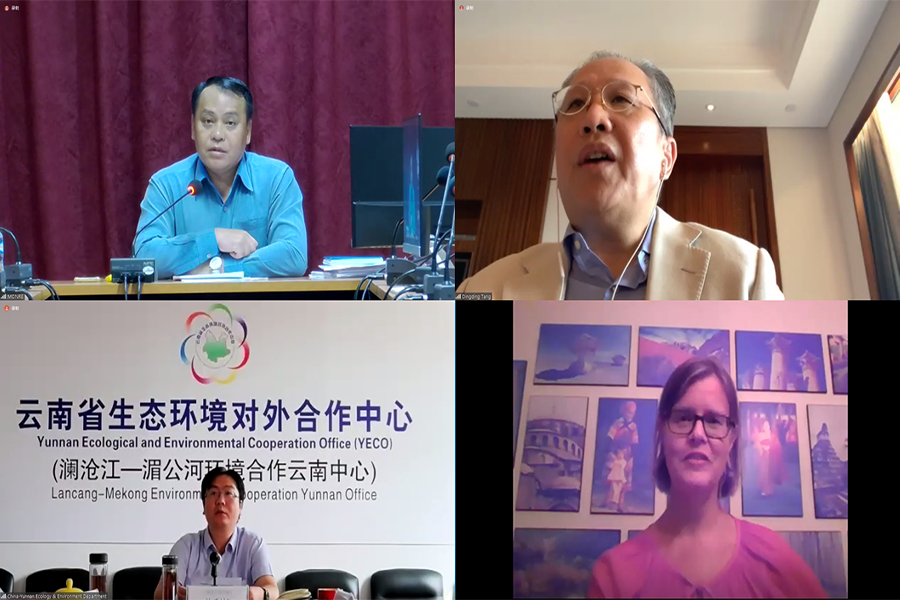
The Roundtable Dialogue mainly discusses key issues concerning future regional environmental cooperation, including ecosystem management, sustainable infrastructure construction and biodiversity conservation, in a bid to enhance practical cooperation, promote the mainstreaming of environmental policies, push forward the construction of Lancang-Mekong Cooperation Green Economic Development Belt.
During the Roundtable Dialogue, two Parallel Sessions were held simultaneously: Constructing Lancang-Mekong Low-Carbon Industrial Parks: Addressing Climate Change and Sustainable Development, and Sharing Practices on Lancang-Mekong Sustainable Infrastructure and Ecosystem Management. Participants made in-depth exchanges and discussions on such topics as cooperation on addressing climate change among Lancang-Mekong countries, low-carbon development of industrial parks in Lancang-Mekong Basin, construction of transportation and ecological corridors, as well as regional cooperation on mangrove protection.
In the afternoon, as a part of the Roundtable Dialogue, the technical exchange on environmental cooperation in Lancang-Mekong Basin was held online. Representatives from China’s outstanding environmental enterprises had in-depth exchanges with all participants over a variety of topics, including comprehensive management of third-party industrial parks, Chinese-enterprises-invested waste-to-energy projects in Mekong countries, water pollution control needs in Mekong countries and China’s relevant experience, as well as experience in construction and operation of green industrial parks in Shenzhen.
